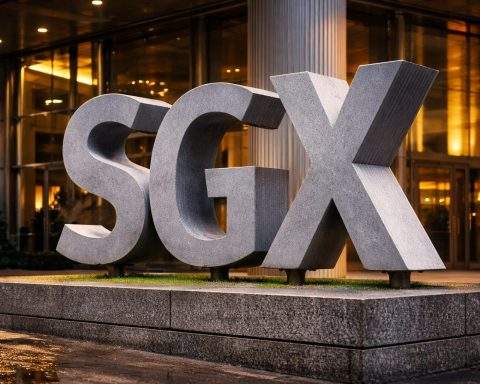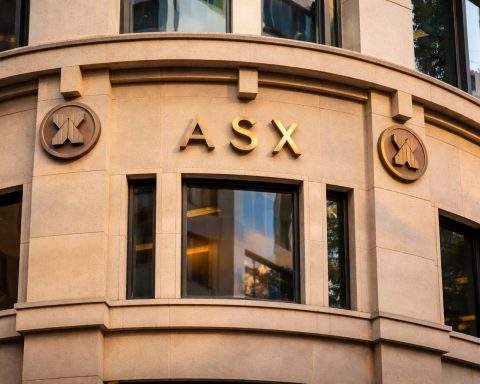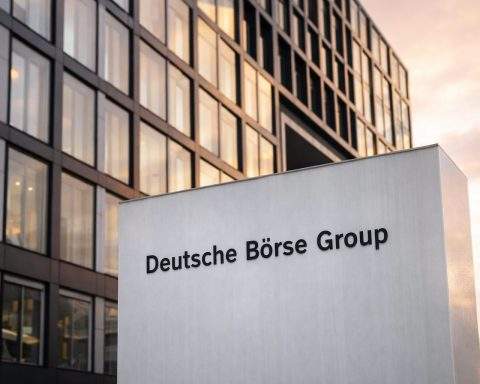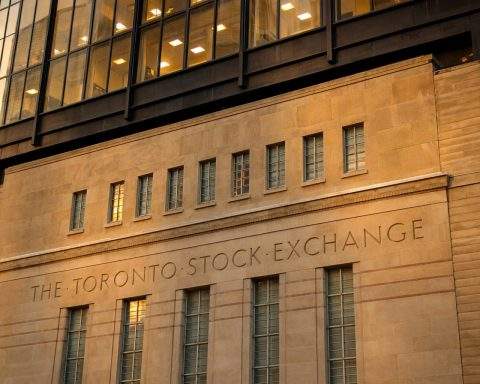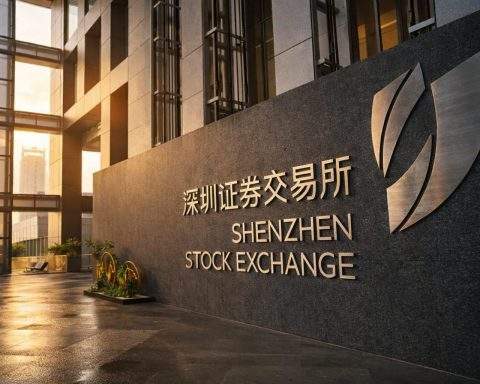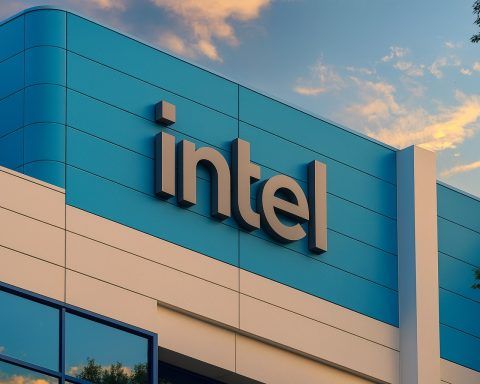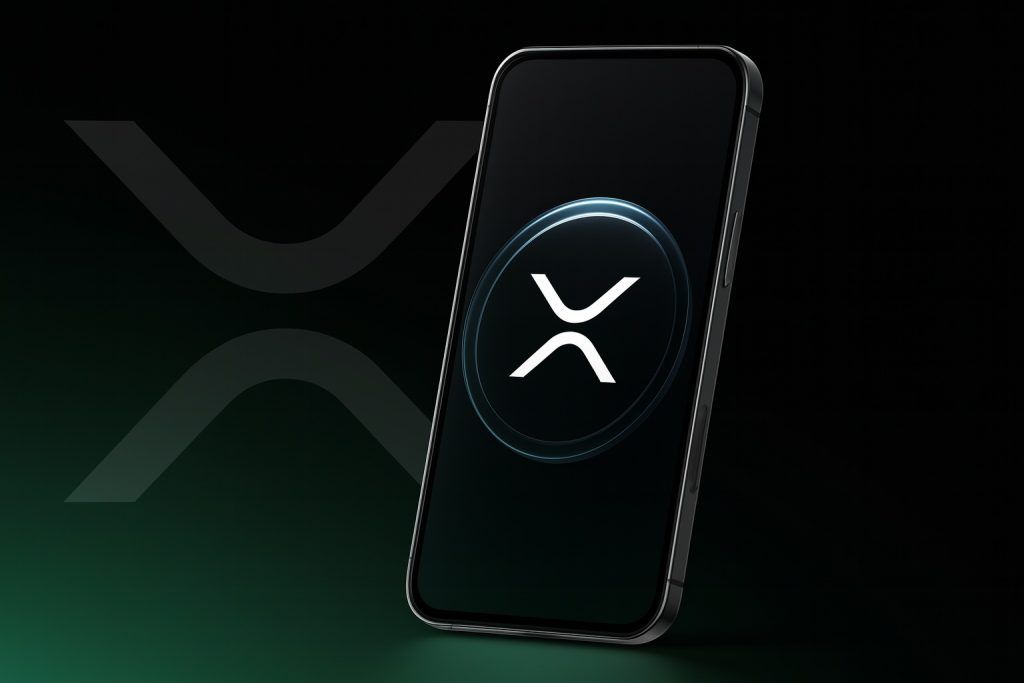Abbott Laboratories is in advanced talks to acquire cancer diagnostics specialist Exact Sciences, in what could be the healthcare giant’s largest deal in nearly a decade and a major shake-up for the global cancer testing market.Bloomberg+1
Abbott in Talks for Biggest Deal in Nearly a Decade
On Wednesday, November 19, 2025, multiple outlets reported that Abbott Laboratories is close to a deal to buy Exact Sciences Corp., a U.S.-based molecular diagnostics company best known for its Cologuard colorectal cancer screening test. Bloomberg+1
According to people familiar with the matter cited by Bloomberg, Abbott is negotiating the terms of a transaction with Exact Sciences and a formal announcement could come in the next few days. The discussions are described as advanced but not final, and there is still a chance that the talks could be delayed or collapse before a definitive agreement is signed. Bloomberg+1
Bloomberg Law reports that the acquisition would be Abbott’s largest since its 2016 purchase of St. Jude Medical, underlining how strategically important cancer diagnostics has become for the company’s long-term growth. Bloomberg Law+1
Neither Abbott nor Exact Sciences has publicly commented on the reported negotiations or potential deal terms as of publication time. Reuters
Market Reaction: Exact Sciences Soars, Abbott Slips
The takeover speculation triggered an immediate and dramatic reaction on Wall Street on November 19:
- Exact Sciences (EXAS) shares jumped roughly 25–30% intraday after the first reports suggested Abbott was nearing a possible takeover, with some accounts noting the stock “soared” on the news. Seeking Alpha+2Seeking Alpha+2
- Bloomberg Law said Exact Sciences rose as much as 29% and was still up about 19% early in the afternoon, giving the company a market value near $16 billion at one point. Bloomberg Law
- Before the news broke, Reuters estimated Exact Sciences’ market value at “more than $13 billion,” highlighting how sharply investors repriced the stock on takeover hopes. Reuters+1
- Abbott (ABT) shares, by contrast, traded lower on the day, falling around 2.5–3% as investors weighed the cost and integration risks of a major deal. Reuters+2Bloomberg Law+2
The move in EXAS also showed up in broader “movers” lists, with Investing.com highlighting the stock among the day’s standout market-cap gainers. Investing.com UK
Why Exact Sciences Is a Prize Asset
Exact Sciences has built its reputation around early cancer detection, especially in colorectal cancer:
- The company’s flagship product, Cologuard, is a non‑invasive stool DNA test that allows patients to screen for colorectal cancer at home and send samples to a lab, offering a more convenient alternative to colonoscopy for many people. Reuters+1
- Unlike colonoscopy, Cologuard doesn’t require sedation or bowel prep, which helps expand screening to patients who might otherwise delay or avoid testing. Reuters
Beyond Cologuard, Exact Sciences has broadened its portfolio through internal R&D and acquisitions to include:
- Oncotype DX, a widely used genomic test in breast cancer and other tumors;
- Additional assays and platforms aimed at detecting cancer earlier and guiding treatment decisions. Wikipedia
Colorectal cancer remains the second leading cause of cancer-related deaths worldwide, according to data cited by the World Health Organization, making large‑scale screening a priority for health systems and policymakers. Reuters+1
For Abbott, acquiring Exact Sciences would instantly deepen its presence in high‑growth cancer diagnostics, a field that sits at the intersection of its existing strengths in laboratory testing, molecular diagnostics and medical devices. Abbott+1
Where Abbott’s Strategy Fits In
Abbott is a diversified global healthcare company operating across four main segments: diagnostic products, medical devices, nutritional products and established pharmaceuticals. Abbott+2Wikipedia+2
In recent years, the group has:
- Invested heavily in medical devices, from continuous glucose monitoring systems like FreeStyle Libre to cardiovascular technologies such as MitraClip and other structural heart devices. Wikipedia
- Navigated a post‑pandemic environment where demand for COVID‑19 testing has fallen, putting pressure on parts of its diagnostics business and prompting management to look for the next wave of growth drivers. Reuters+1
Analysts have long expected Abbott to use its strong balance sheet and cash flows to pursue strategic deals that shore up higher‑growth areas. An acquisition of Exact Sciences would:
- Add a fast‑growing cancer diagnostics franchise to Abbott’s diagnostic and lab testing portfolio;
- Potentially create cross‑selling opportunities through Abbott’s existing relationships with hospitals, clinics and labs in more than 160 countries; Abbott+1
- Give Abbott greater exposure to recurring revenue from screening tests and oncology diagnostics, which tend to be less cyclical than some device segments.
Bloomberg Law’s characterization of the transaction as Abbott’s largest in nearly ten years underscores just how central the deal appears to be for the company’s long‑term growth narrative. Bloomberg Law+1
Deal Structure, Valuation and What We Know So Far
Key details such as the purchase price, mix of cash and stock, and any earn‑out or contingent payments have not yet been disclosed in public reporting. The available coverage makes clear that:
- Abbott and Exact Sciences are in advanced negotiations, with sources indicating a deal could be announced “in the coming days” if talks stay on track. Bloomberg+2Bloomberg Law+2
- The parties are still in the deliberation phase, and multiple reports emphasize that an agreement could be delayed or may not materialize at all. Reuters+1
- Market data show investors are already pricing in a meaningful takeover premium, given the sharp intraday spike in EXAS shares. Bloomberg Law+2MarketScreener+2
Based on Wednesday’s trading, the implied equity value of Exact Sciences is significantly above its pre‑rumor market capitalization of just over $13 billion, and in some moments of the session approached roughly $16 billion, according to Bloomberg Law and market‑screening services. Reuters+2Bloomberg Law+2
If the takeover premium extends beyond that level once terms are announced, the final transaction value could rank among the largest diagnostics deals of the decade.
Regulatory and Antitrust Questions
A transaction of this scale in cancer diagnostics would almost certainly attract scrutiny from competition authorities in the United States and, potentially, other major markets:
- Abbott already holds a major global position in diagnostic assays and lab systems, while Exact Sciences is a leading branded player in colorectal cancer screening and oncology genomics. Wikipedia+1
- Regulators would likely examine whether combining Abbott’s testing infrastructure with Exact’s brands could disadvantage competing test makers or laboratories, especially in colorectal cancer screening.
Recent history also shows that Exact Sciences is already on regulators’ radar for partnerships in blood‑based colorectal cancer screening, where earlier this month the company announced the expiration of the antitrust waiting period for an exclusive license to Freenome’s screening tests in the U.S. MarketScreener+1
While that earlier review related to a licensing agreement rather than a full corporate merger, it illustrates that competition regulators view colorectal screening technology as strategically important. A full Abbott–Exact Sciences tie‑up would likely face even more detailed review.
What the Deal Could Mean for Cancer Screening and Patients
If completed, the transaction could have significant implications beyond the stock market:
- Acceleration of innovation
- Abbott’s global scale and capital resources could speed up the development, validation and rollout of new cancer screening tests across multiple tumor types.
- Exact Sciences’ R&D and biomarker expertise, combined with Abbott’s manufacturing and distribution, might shorten the time it takes to bring new assays from clinical study to routine clinical use. Abbott+2Wikipedia+2
- Broader global access
- Abbott serves more than 160 countries, giving Exact’s tests a much wider potential footprint, especially in emerging markets where colorectal screening programs are still developing. Abbott+1
- Pricing and competition concerns
- On the other hand, critics may worry that reduced competition in some niches of the cancer testing market could limit pricing pressure over time.
- Payers and health systems are likely to watch closely to ensure that a combined Abbott–Exact Sciences does not use its scale to disadvantage rival technologies.
Given that colorectal cancer remains a major cause of mortality worldwide, any deal that influences access to screening tools such as Cologuard will attract attention from public‑health advocates as well as investors. Reuters+1
What Investors Will Watch Next
Until a formal announcement is made, markets and analysts are likely to focus on several key questions:
- Final valuation and premium: How much of a premium will Abbott ultimately pay over Exact Sciences’ unaffected share price, and what does that imply about the growth expectations baked into the deal?
- Financing mix: Will the acquisition be funded primarily with cash, stock, or a combination – and how might that affect Abbott’s balance sheet, credit ratings and appetite for future deals?
- Synergy targets: Management will be expected to outline both cost synergies (e.g., overlapping corporate functions, supply chain efficiencies) and revenue synergies (e.g., cross‑selling tests on Abbott’s platforms and into new geographies).
- Regulatory timetable: Investors will look for clarity on expected filing timelines and which jurisdictions will require deeper antitrust or health‑policy review.
For now, the market’s verdict is clear: Exact Sciences is being valued as a highly sought‑after asset in a critical corner of the healthcare sector, while Abbott’s shareholders are cautiously weighing the short‑term cost of a major acquisition against its long‑term strategic logic. Reuters+2Bloomberg Law+2
This article reflects information available as of November 19, 2025, based on reports from Bloomberg, Reuters, Bloomberg Law, Seeking Alpha, MarketScreener and other financial news services.

